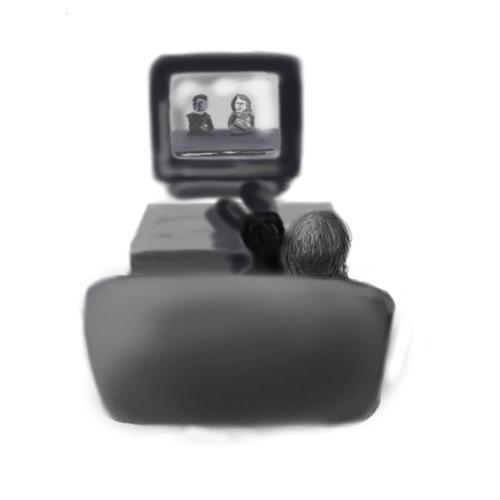
News
Garber Privately Tells Faculty That Harvard Must Rethink Messaging After GOP Victory

News
Cambridge Assistant City Manager to Lead Harvard’s Campus Planning

News
Despite Defunding Threats, Harvard President Praises Former Student Tapped by Trump to Lead NIH

News
Person Found Dead in Allston Apartment After Hours-Long Barricade

News
‘I Am Really Sorry’: Khurana Apologizes for International Student Winter Housing Denials
The Ship of Truth
Mainstream media is failing at informing the public

Few today would argue that the news industry is anything but that: an industry. That is to say, it competes to sell a product, turn a profit, and do it all over again the next day. The major news networks—and they are “networks” in the sense of being synchronized for the same purpose—have become giant businesses. As a result, those of us who revel in knowledge are blessed with a deluge of it: 24-hour news channels, e-mail updates, and news websites with handheld access.
Of course, anyone who knows this much knows that news networks don’t always get it right either. One might call to mind the U.S. Presidential election of 2000 when a candidate was dubiously named victorious when the results were not in, or, more recently, when on one station disgraced Congressman Mark Foley was incorrectly labeled “D-FL” suggesting he was a Democrat, not a Republican. Countless instances of fact distortion surrounding the U.S. war in Iraq, the presence of weapons of mass destruction, and the alleged links between Saddam Hussein and al-Qaeda, have occurred in only the last six years and have led to some startling statistics in terms of what Americans believe to be true.
Worse yet is the fact that the aforementioned are all easily verifiable, as opposed to the more complex hypotheses and allegations made by TV analysts and pundits, all of which contributes to exactly what people should not be consuming: misinformation.
Because an uninformed public—or worse, a misinformed one—leads to a less than ideal voting public and because this public has the responsibility to elect a governing body, there is a strong argument to fix the problem of unreliable media.
One idea is to for the government to take charge and create a system of monitoring misinformation, punishing companies who make a habit of it, and informing the public when such violations have occurred. Unfortunately, not only would it be impossible to implement this idea amidst anti-government control screams of conservatives and liberals alike, it would also leave censorship in the hands of those who would benefit from it the most: politicians.
Another idea is to have the struggle against misinformation take place in the world of academia, rather than the forum of public policy. Rather than giving the government the keys to censorship, we should drown misinformation in scholarship. Institutions geared towards enriched education should pave the way by sponsoring research into how people are being affected by the media, how the media might be manipulated to affect the people, and what people can do to be better aware of when this might be happening. This way, when we make the news, we can make it worthy.
Brendan D.B. Hodge ’07, a Crimson editorial editor, is a government concentrator in Cabot House.
Want to keep up with breaking news? Subscribe to our email newsletter.
